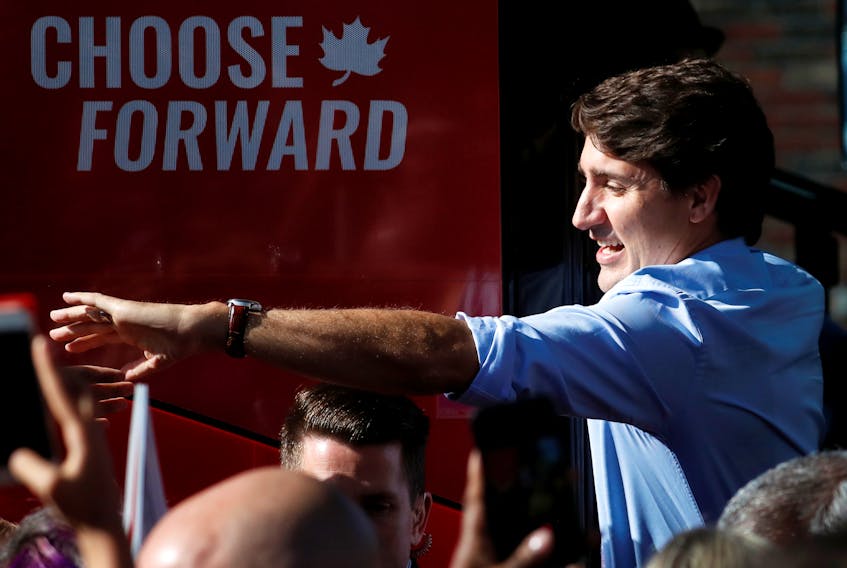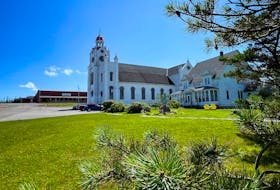Major scandal, widespread environmental protests, a federal election and a lasting discussion on the state of national unity are just some of the things that made headlines in the last 12 months.
There’s no question, 2019 was a big year in Canadian politics. With the help of several experts, SaltWire has broken down the top political stories of the year and how they will reverberate into 2020 and beyond.
1 — SNC Lavalin’s lasting impact

The year began with what would become the biggest story of the year: then attorney general and Justice minister Jody Wilson-Raybould accusing the Prime Minister's Office of interference in her handling of a fraud case involving Quebec-based contracting company SNC Lavalin.
What former Trudeau right-hand man (and Cape Breton native) Gerald Butts would identify as the first domino in that whole fiasco was the resignation of former Treasury Board president and long-time Nova Scotia MP Scott Brison in January. It prompted a cabinet shuffle that would see Wilson-Raybould demoted to Veterans Affairs and, well, the rest is history.
“I think that was a huge story and we're still seeing the repercussions,” said University of P.E.I. political science professor Don Desserud.
Not only did the story shape election discourse, just last week SNC Lavalin pled guilty to one count of fraud, a plea deal that resulted in other charges being withdrawn.
Seemingly having learned a lesson from the whole ordeal, Prime Minister Justin Trudeau recently penned in an explicit separation between the prosecution branch of the attorney general office and the federal government in the mandate letter to new Justice minister David Lametti.
2 — Environment: the year of Greta and Northern Pulp

This was the year of climate protests, of teenage climate activist Greta Thunberg, and of a notable surge of support for the Green Party in Atlantic Canada (federally and provincially. This was especially so in P.E.I. where the Greens, led by Peter Bevan-Baker, surged into opposition in the April election.
It was also the first year for the implementation for federally-imposed carbon pricing, despite opposition from some provinces, causing political divisions that would play out on a provincial and national scale.
In 2019, we saw environment become a top political issue at the national level, Dalhousie political sociologist Howard Ramos told SaltWire, something Canada’s political parties took note of in their party platforms.
“There’s a supermajority of Canadians, even in Alberta, who recognize the need for climate action. We see an openness the Paris targets, you see an openness to carbon pricing and you see the energy that came with Greta when she came to Canada and mobilizing youth, it's become a front and centre issue.”
Thunberg would be crowned Time magazine’s person of the year.
The environment is also at the front and centre of Nova Scotia story that is causing reverberations across the region — the impending closure of Northern Pulp’s Boat Harbour treatment facility.
Last week, the Nova Scotia government withheld approval of Northern Pulp’s focus report in support of its proposed effluent treatment facility, which would discharge treated effluent into the Northumberland Strait. The plan had been met with opposition from environmentalists, fishermen, and the P.E.I. government.
Days later, Nova Scotia Premier Stephen McNeil announced he would make good on a commitment to the indigenous community of Pictou Landing made in the Boat Harbour Act, promising to close the effluent plant by Jan. 31, 2020.
How that plays out politically, and the impact on the region’s forestry industry, remains to be seen.
“This a moment in history for Nova Scotia,” said Cape Breton University political science professor Tom Urbaniak.
“I predict that a generation from now textbooks will not ignore this because the ramifications on many fronts are significant.”
3 — Election 2019: No to right-wing populism, yes to minority governments

It’s impossible to recap the top stories of 2019 without mentioning the lead up to and results of the federal election.
For Ramos, one major takeaway is the lack of support for far-right and populist policies in Canada, in contrast to what has been observed elsewhere.
Ramos said this was seen on both a national and regional scale with Maxime Bernier’s People’s Party of Canada — the outcry across Nova Scotia when the party erected a “Say No to Mass Immigration” billboard and later the failure of the PPC to win any seats, including Bernier’s own, or attract many votes (the party received approximately 1.6 per cent of the popular vote nationwide).
“It shows that Canadians are more middle-centre in terms of their politics and that there's no room for that kind of far-right politicking,” Ramos said.
Another major story out of the election — and one that would dominate the headlines for the last few months of 2019 — is the regional divisions made apparent by the results.
Most notably, the differences in the West, which saw the Liberals completely shut out of Alberta and Saskatchewan in favour of the Tories. As well, Quebec saw significant losses for the Liberals and gains for the Bloc Quebecois and, in Atlantic Canada, 26 out of 32 seats returned to the Liberals after a full red sweep in 2015.
Looking ahead to 2020, stories to watch include how Trudeau’s Liberals fare in a minority government in the face of some upcoming confidence votes and what kind of concessions they will have to make to move on their major campaign commitments like pharmacare.
4 — A country divided?

The concerns about national unity that evolved from the 2019 federal election results is a story that deserves recognition of its own.
“There are some very clear fault lines now,” Desserud said.
In early December, the Council of the Federation met in Toronto to try and find some common ground in order to set the stage for federal policymaking. With tensions high, the premiers knew it would be wise for Ottawa to make whatever they could agree on a top priority.
The provinces ended up coming forward with a number of asks. Of the major ones was more money for health care specifically an increase in funding by an annual escalator of 5.2 per cent to the Canada Health Transfer, which has long been a top priority of the Atlantic region due to its ageing population). Another request was a retooling of the federal fiscal stabilization fund to better rise to the needs of oil-producing provinces facing financial struggles (mainly Alberta, Saskatchewan, and Newfoundland and Labrador.)
The fiscal stabilization program has been framed as an easier solution to economic disparity, one of the areas driving the east-vote split, as opposed to any sort of re-opening of the equalization formula, which some provinces were calling for.
“If that does happen, it's going to be interesting to see how they do it, but that could have serious economic impact,” Desserud said.
Trudeau has promised to have a sit-down with the premiers to hammer out some of these issues at a First Ministers meeting early in 2020.
How the Liberal minority government continues to handle tensions in the federation, new tensions arising from commitments to things that touch provincial jurisdictions like pharmacare, and the implementation of the new environmental impact assessment act will no doubt be a major undertaking for 2020.
5 — Where the Tories go from here

One of the final major headlines of 2019 that will spill over to 2020, and have reverberations for years to come, was the resignation of Andrew Scheer as Conservative Party leader in mid-December, pending the selection of a new leader, and the ensuing leadership race to replace him.
Scheer’s effectiveness as leader has been in question since the disappointing results of the federal election. The party’s second-place support has been in part blamed on his unwillingness to take a hard stance one way or another on social issues like gay marriage and abortion.
There were allegation Scheer improperly used party funds to pay for his children's private school and that led to a forced resignation, but the party has denied those allegations.
The bigger picture, said Desserud, is the division between social and fiscal conservatism within the party that has since come to light. This is perhaps unsurprising considering the party itself is an amalgamation between the former Progressive Conservative and more-right leaning Canadian Alliance parties.
“Scheer was getting it from both sides, the moderate Progressive Conservatives didn't like he wouldn't come out in favour of same-sex marriage ... and the social conservatives were upset that he wasn’t clearly on their side,” Desserud said
“Whoever is going to be leader is probably going to take that as a message to not be wishy-washy.”
Urbaniak says the results of the leadership race, which will take place sometime in 2020, will shape the political landscape in the coming years.
“I can’t understate how important this is for the political dynamics of Canada,” he said.
“Even though the Canadian population does hover around the centre, don't assume a hard-right Conservative party would cancel itself out. No government is forever, and Liberals would be making a terrible mistake if they hope for the Conservatives to veer too much towards an extreme.”
Atlantic Canadians, especially Nova Scotians, will be watching closely to see if Peter MacKay, a former MP, Harper cabinet minister and federal Progressive Conservative leader, will stage his long-rumoured return to federal politics to run for leadership.
RELATED:
- The SNC-Lavalin scandal: Here's what's true and what's false
- EDITORIAL: A slap for SNC-Lavalin
- Teenage climate activist Greta Thunberg is Time's Person of the Year
- Northern Pulp decision validates rights, First Nations lawyer says
- Chastened Trudeau to reach out to opponents after Canada election blow, rules out coalition
- ELECTION 2019: Atlantic business leaders react to results
- Newfoundland and Labrador Premier Dwight Ball concerned about national unity following federal election
- EDITORIAL: Scheerless Conservatives must broaden party's appeal
- With Andrew Scheer out, will Peter MacKay seek the Conservative leadership?









